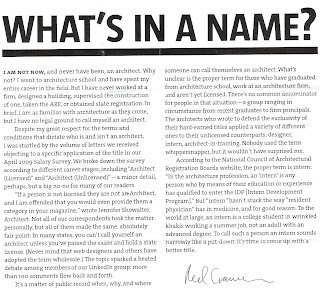
Wednesday, February 24, 2010
Piano Bombed
Tuesday, February 23, 2010
mi humilde opinion
Tenia tiempo sin dar mi opinion acerca de la situacion en Mexico simplemente porque desafortunada ya no soy residente y no es justo hablar de el si no vivo Mexico a diario, y no por miedo sino por seguir la ruta de lo impredesible y la ficcion, mas sim embargo sigo pendiente de lo que ahi pasa, y creo (opinion humilde de un servidor) que es hora de que la pena capital se ponga en marcha. Nosotros los mexicanos nunca vamos aprender (los que se dedican al secuestro, robo con violencia, crimen organizado, y narco-menudeo) es hora de desechar a la basura-humana que solo esta dañando al resto del pueblo. Mexico vive una narco-era-heredera-de-los hermanos-almada-sin-limites, ya no es divertido ser mexicano.
Sunday, February 21, 2010
What's in a name?
Wednesday, February 17, 2010
Saturday, February 13, 2010
Tuesday, February 9, 2010
Floppy Disk Art



Artists frequently turn to technology for inspiration or commentary, utilizing components such as chips, ink cartridges and disk drives to make their art. Remember the Mona Lisa created from motherboard bits or the motorcycle from old hard drives?
Now, London artist Nick Gentry has turned forgotten floppy disk drives into art by using them as a canvas for mixed media paintings.
“The whole world was totally reliant on these physical media formats,” he says. “Now suddenly we are at a time where they are obsolete, replaced by countless intangible data files. Will humans be compatible with our own technology?”
Inspired by Brazilian-born artist Vik Muniz’s giant world map made entirely of old computer parts, Gentry adopted floppy disks as his medium.
“I looked at using the disks in a grid to create photo-fits, constructing imaginary faces and identities that could draw connections to the personal information stored on the disks,” he says.
For instance, a metal circular hub on the reverse side of the disk worked as a metaphor for the human eye.
The number of disks varies in each painting. A small one can use up to 6 disks, while larger paintings can take up 100 disks or more.
“I ask people to donate the disks through my website but mainly I buy them,” Gentry told Wired.com. “They are still relatively cheap to buy as they are seen by most people as junk.”
To create a piece, Gentry starts with a preparatory sketch that is mapped into a grid, with each section the size of one disk. Spray paint is applied to the disks using a stencil to preserve the label and metal slider. The disks are then placed in tonally appropriate areas, almost like pixels, to create a collage, he says. Gentry then uses oil paint to finish other details of the piece.
The paintings are priced from £300 to £700 (approximately $470 to $1,100).
Read More http://www.wired.com/gadgetlab/2010/02/art-floppy-disks/#ixzz0f4ZW6zyR
Now, London artist Nick Gentry has turned forgotten floppy disk drives into art by using them as a canvas for mixed media paintings.
“The whole world was totally reliant on these physical media formats,” he says. “Now suddenly we are at a time where they are obsolete, replaced by countless intangible data files. Will humans be compatible with our own technology?”
Inspired by Brazilian-born artist Vik Muniz’s giant world map made entirely of old computer parts, Gentry adopted floppy disks as his medium.
“I looked at using the disks in a grid to create photo-fits, constructing imaginary faces and identities that could draw connections to the personal information stored on the disks,” he says.
For instance, a metal circular hub on the reverse side of the disk worked as a metaphor for the human eye.
The number of disks varies in each painting. A small one can use up to 6 disks, while larger paintings can take up 100 disks or more.
“I ask people to donate the disks through my website but mainly I buy them,” Gentry told Wired.com. “They are still relatively cheap to buy as they are seen by most people as junk.”
To create a piece, Gentry starts with a preparatory sketch that is mapped into a grid, with each section the size of one disk. Spray paint is applied to the disks using a stencil to preserve the label and metal slider. The disks are then placed in tonally appropriate areas, almost like pixels, to create a collage, he says. Gentry then uses oil paint to finish other details of the piece.
The paintings are priced from £300 to £700 (approximately $470 to $1,100).
Read More http://www.wired.com/gadgetlab/2010/02/art-floppy-disks/#ixzz0f4ZW6zyR
Subscribe to:
Comments (Atom)








